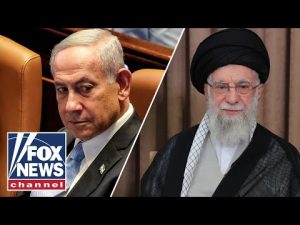In a recent unsettling event, a U.S. veteran found himself the target of harassment simply for expressing his opinion. This incident showcases the troubling environment created by those who claim to support the Palestinian cause, but do so in a manner that belittles and disrespects the sacrifices of American servicemen and women. When the veteran made a politically incorrect comment about extremist actions tied to terrorism, he faced a barrage of aggressive taunts from individuals who were less interested in discourse and more interested in creating chaos.
This situation is emblematic of a larger issue within progressive circles that often claim to speak for the oppressed. It demonstrates their willingness to attack American heroes who have fought for freedom abroad, all while trying to protect a narrative that aligns with their views. The veteran, who had served his country bravely, was confronted with disrespect rather than engaging debate, revealing a disturbing contradiction in the supposed values of these self-proclaimed activists.
To add further insult to injury, the aggressors quickly transitioned from asking questions to making degrading remarks. The veteran’s attempts to share his perspective—rooted in personal experience from his time in the Middle East—were met with jeers instead of thoughtful conversation. It serves as a stark reminder that beneath the surface of progressive rhetoric lies an intolerance for opposing views, especially those that challenge their ideological stance.
It is essential to recognize that discussions around the Middle East are complex, often entrenched in deeply rooted historical conflicts. The veteran’s comments regarding the extremists in the region were based on lived experience, yet those who sought to silence him seemed more concerned with their narrative than the truth. This is a clear indication of how certain factions will go to great lengths to protect their ideology, even if it means silencing those who have put their lives on the line for freedom.
As the situation escalated, rather than fostering an atmosphere of understanding, those in support of Hamas resorted to intimidation and disdain. This behavior exemplifies a divisive mindset that not only harms meaningful dialogue but also trivializes the sacrifices made by military personnel. The veteran, despite his bravery and service, was treated not as a hero but as an invader in a debate that was never truly a debate; it was a shouting match designed to drown out any dissent.
In conclusion, the incident with the veteran raises significant questions about the sincerity of those who voice support for Palestinian rights. Are they truly advocating for peace and understanding, or are they merely using the narrative to mask a deeper aggression against those who stand for law, order, and traditional American values? The time has come for more individuals to speak out and defend our veterans who have fought for our freedoms. As these events unfold, America must prioritize respect for its heroes and foster an environment where constructive conversation can thrive once more.







